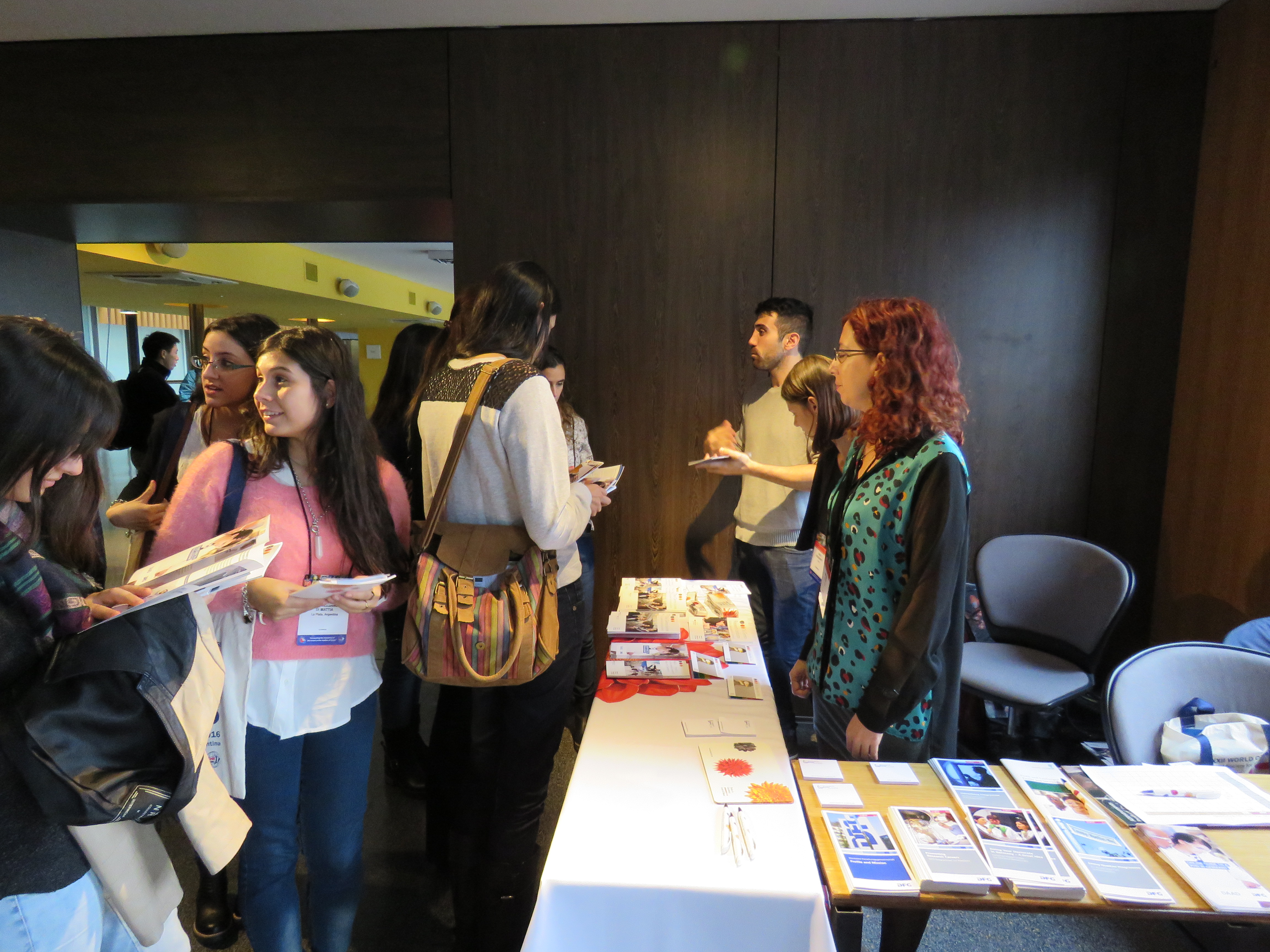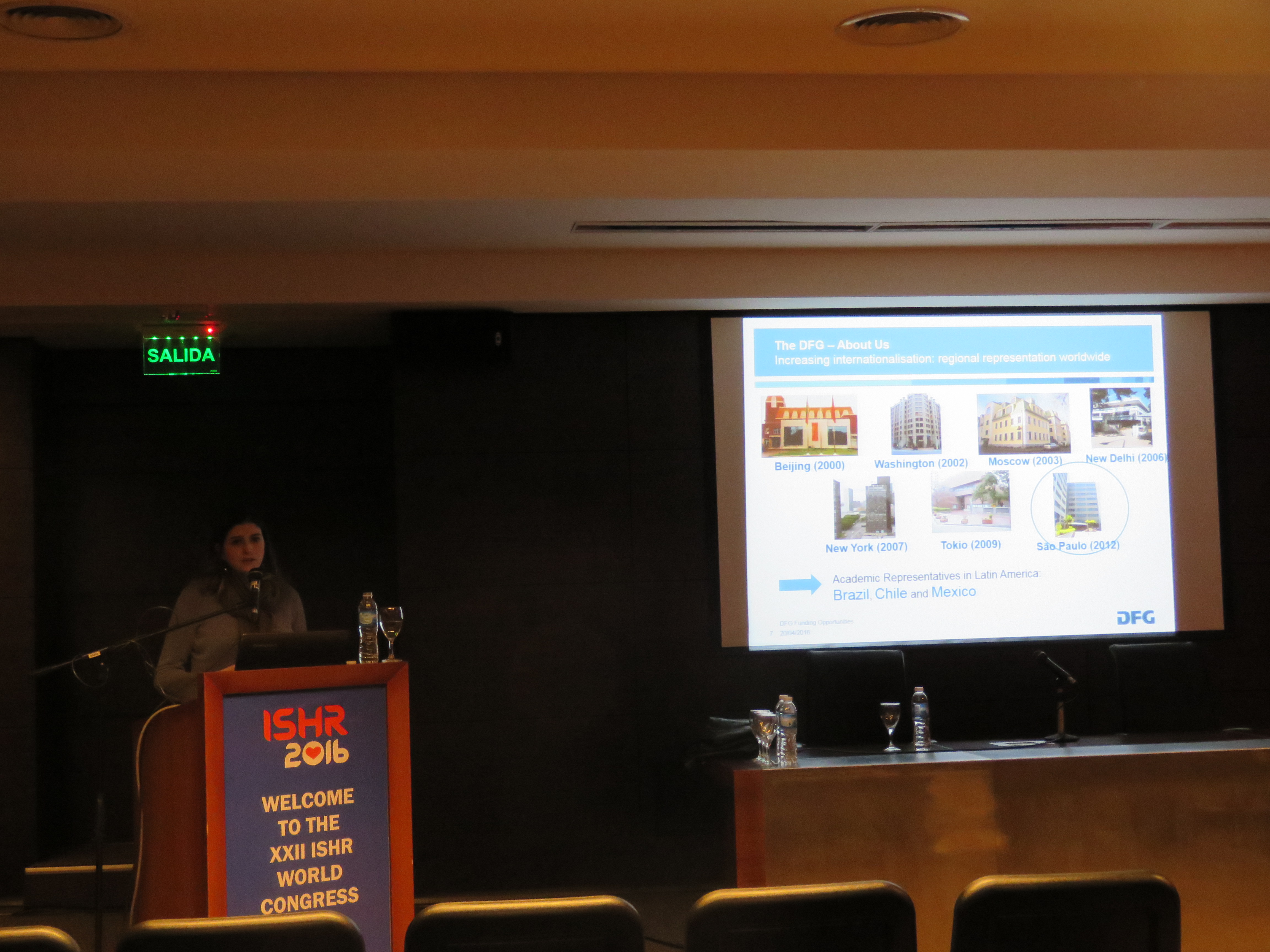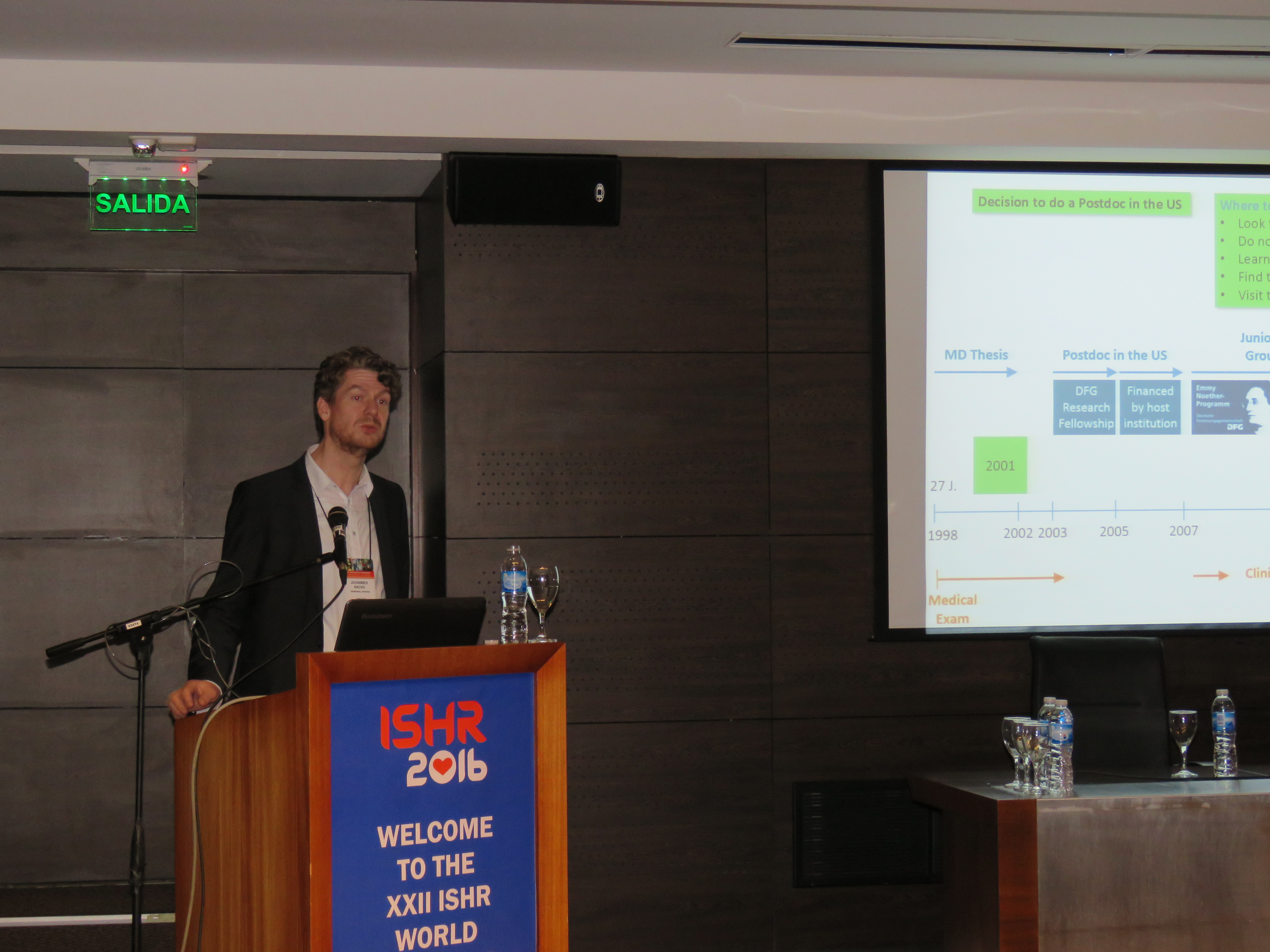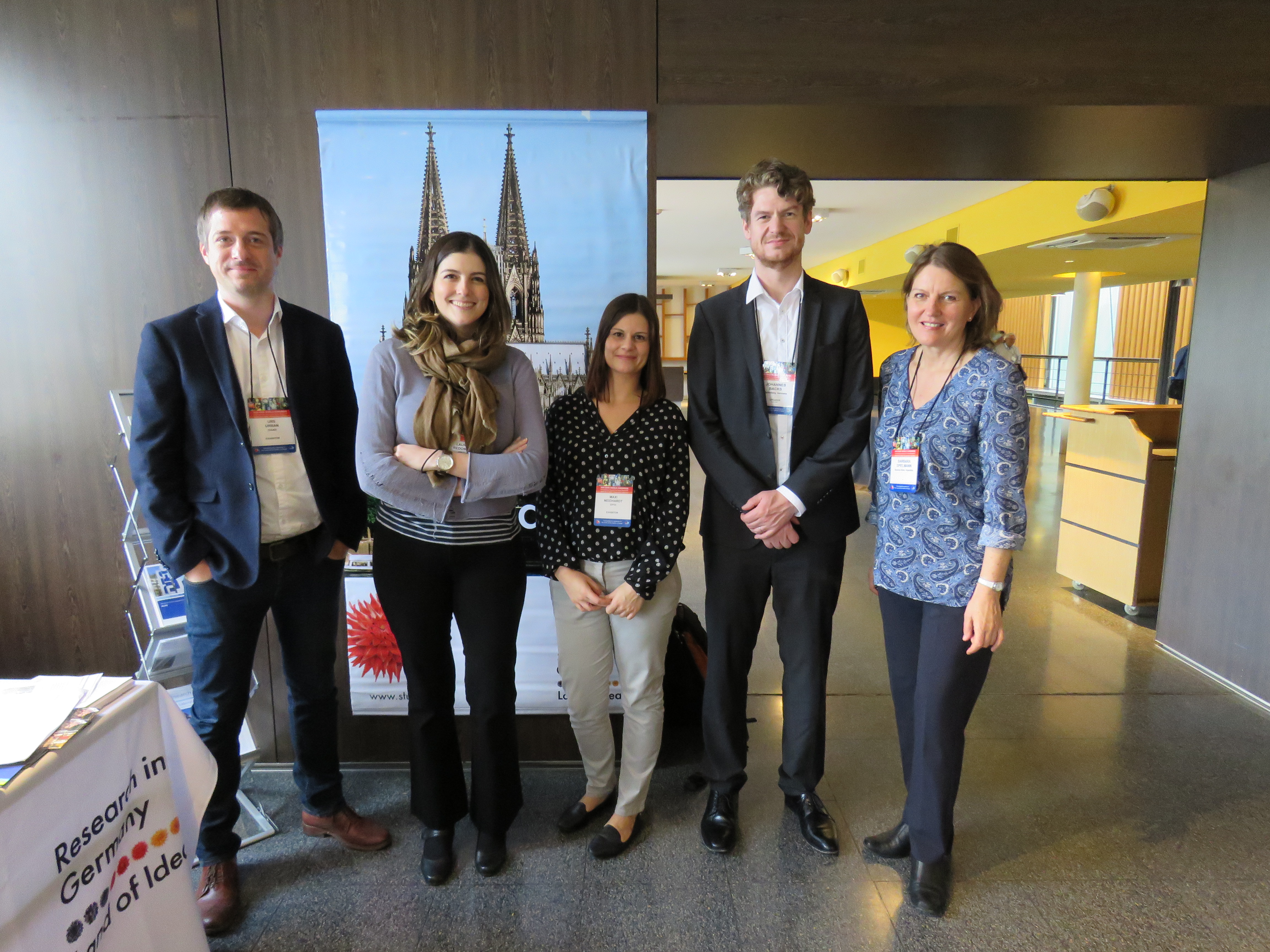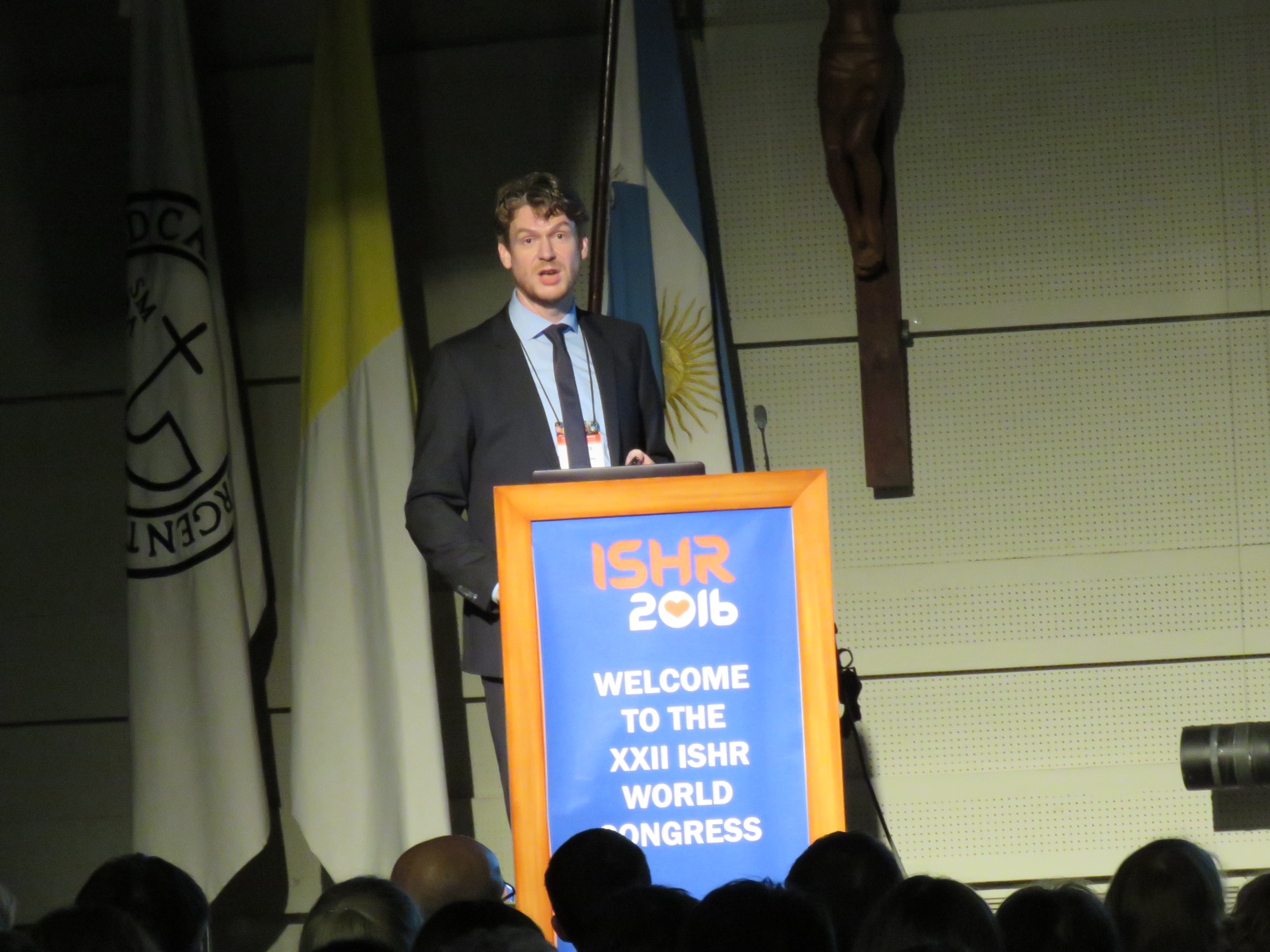"Research in Germany" at the International Heart Research Conference in Buenos Aires for the First Time
Conference delegates obtain advice at the "Research in Germany" information table.
(26.04.16) The DFG was represented in the "Research in Germany" team which attended the 22nd International Heart Research Conference of the International Society for Heart Research (ISHR) in Buenos Aires from 18-21 April 2016. The motto for the event, which was held for the first time in Latin America, was "Unraveling the Mysteries of the Heart at the Rhythm of Tango". Approximately 500 delegates were registered to attend the conference. According to the organisers, 80% of them came from the USA, Europe and Asia and the remaining 20% were from the Latin American countries.
At the "Research in Germany" stand, representatives of German research and funding organisations – the DFG, the DAAD, the Alexander von Humboldt Foundation and the Max Planck Society – offered information and individual advice to researchers interested in research and funding opportunities in Germany. As most of the delegates were researchers who had already completed their doctoral studies, the information they were requesting at the "Research in Germany" stand concerned mainly instruments for funding collaborative research and opportunities for postdoc and research visits.
Before the official opening of the conference on the first day, the "Research in Germany" representatives took part in the Early Career Investigator event which consisted of a number of specialist information seminars attended by approximately 150 people from various countries who also had the opportunity to network over lunch. On the Wednesday afternoon, "Research in Germany" organised a workshop, "Fellowships, Exchange and Collaboration Programmes", at which the DFG, DAAD and the Max Planck Society presented their funding programmes or their research institutes. Professor Dr. Johannes Backs, who received the Outstanding Investigator Award at the conference, presented a vivid account of his research career which linked his research periods with the relevant funding instruments. He explained the opportunities for funding postdoc research visits and how he had been able to establish his own Research Unit with funding from the Emmy Noether Programme. He engaged his audience with some valuable tips and information for early career researchers which were gratefully received.
